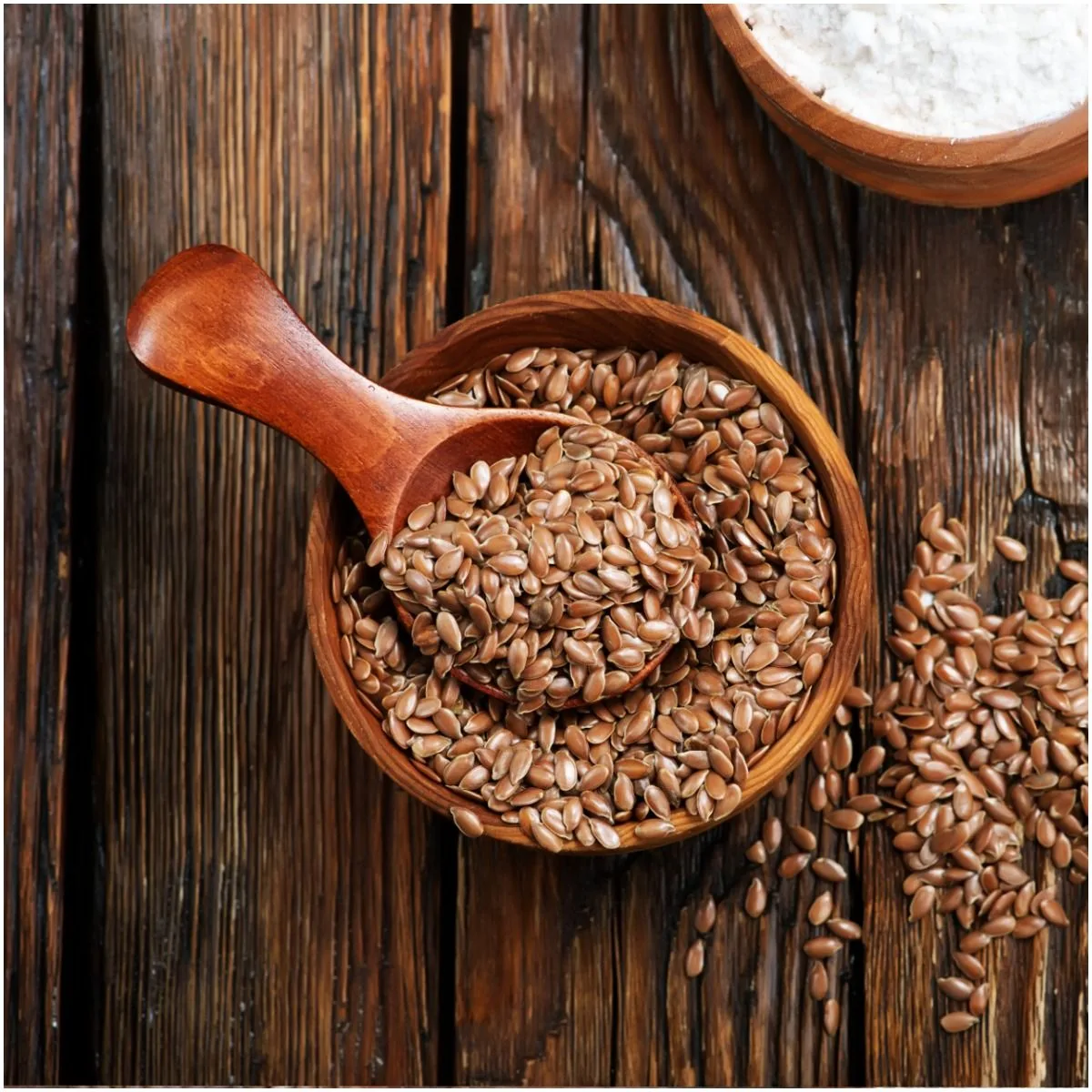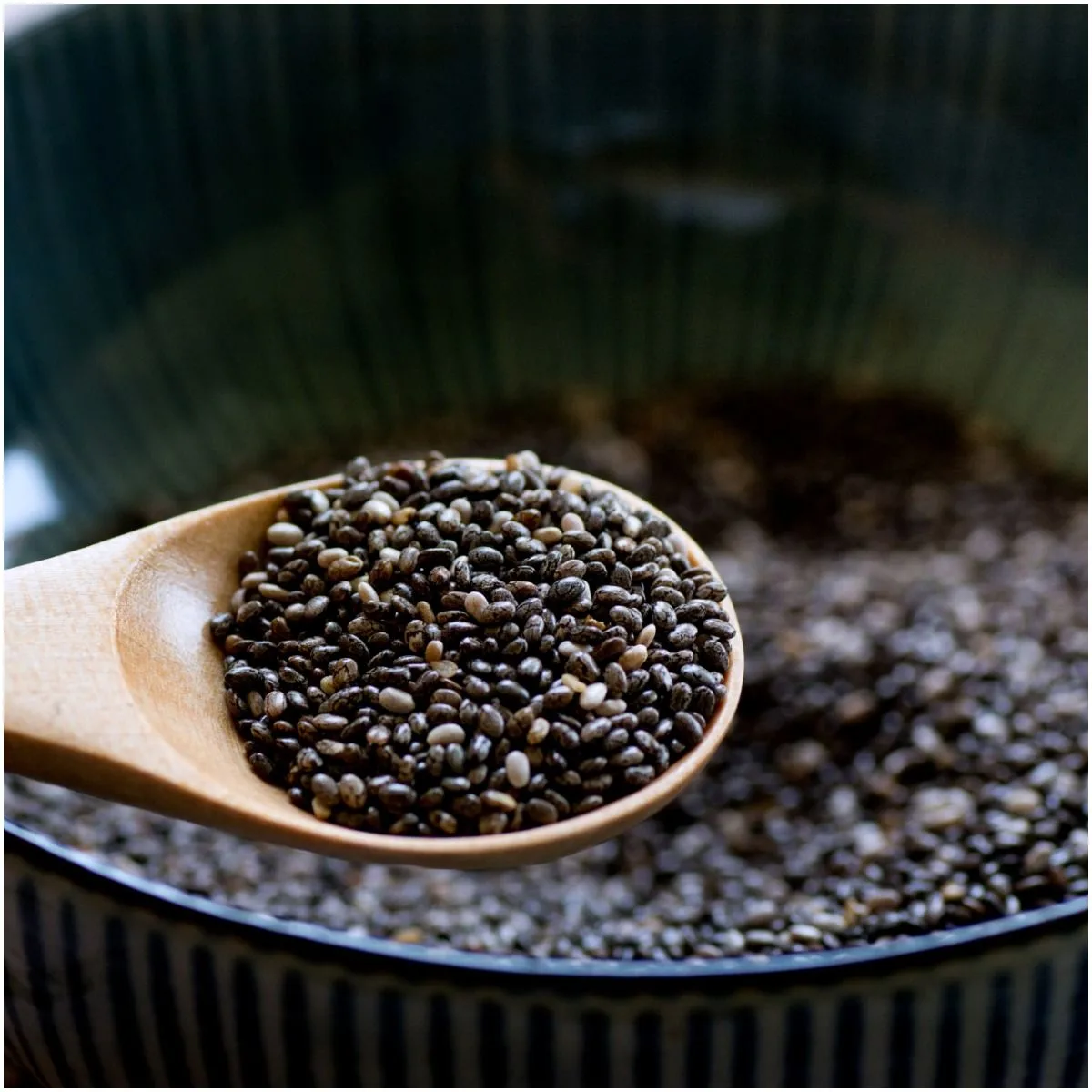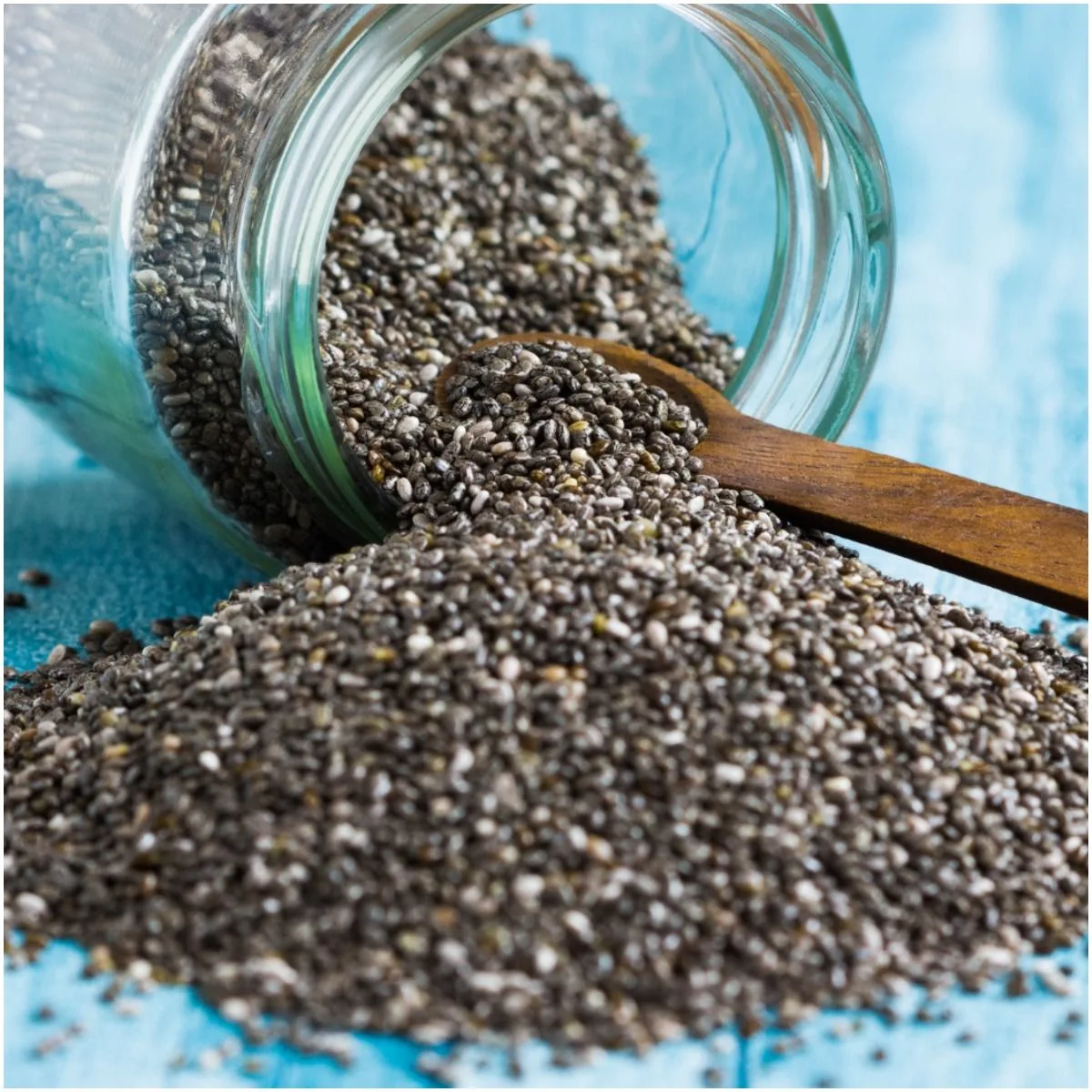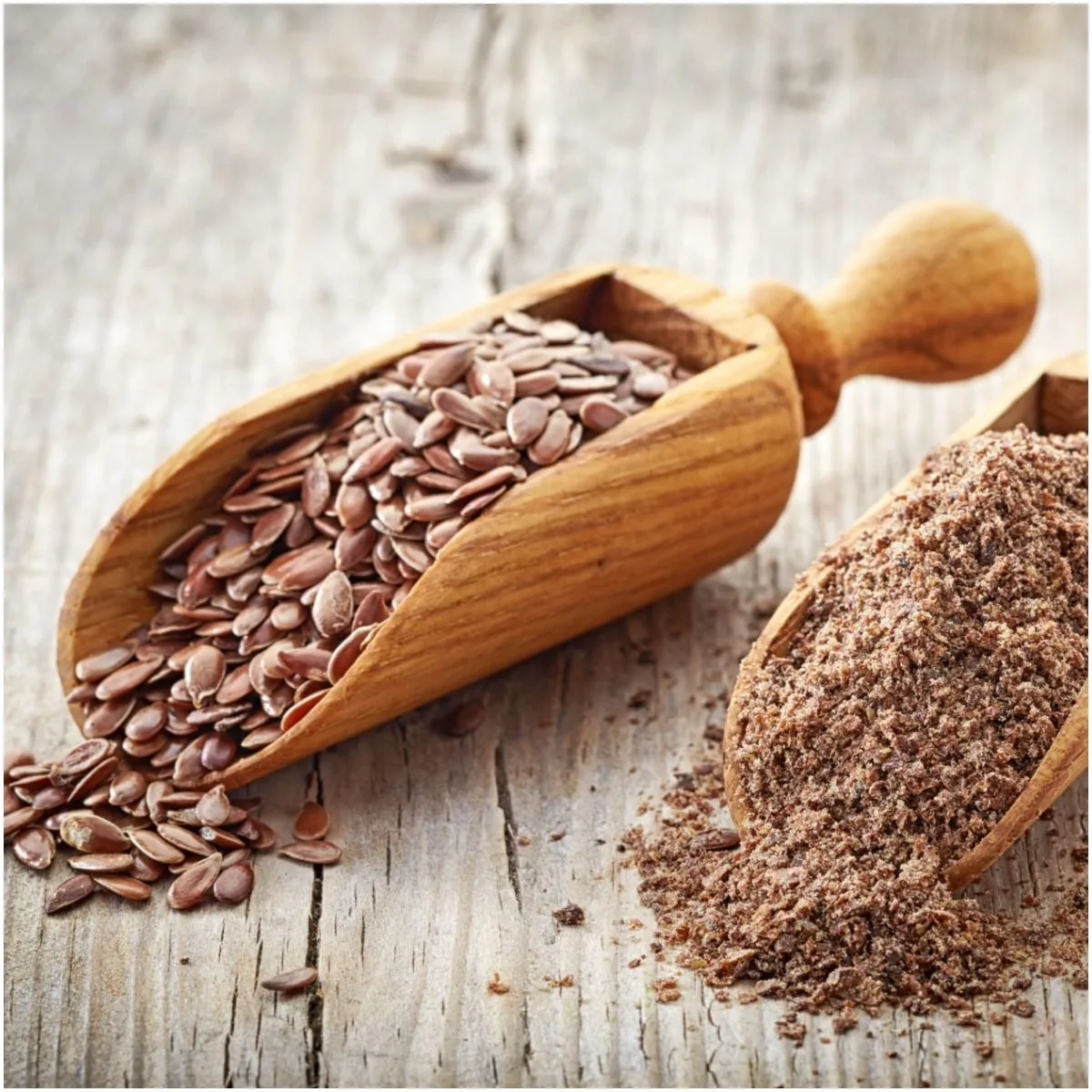The benefits of flax and chia seeds have never been a secret. But in recent years, the rise of superfoods has become increasingly more apparent.
Both flax and chia seeds are well-known examples of this seemingly uber health booster.
Regardless of the one you choose, you will be receiving a wealth of goodness including healthy fats, dietary fiber, vitamins, protein, and even minerals.
All of which will undoubtedly help you lead a longer, more fulfilling life.
Moreover, both types of seeds have been linked to a healthier heart, protection from some cancers, and lower blood glucose levels. Essentially, a healthier, happier you is just around the corner.
But the struggle comes when deciding which one to choose.
It’s the eternal flax vs chia debate. Do you have to pick from cancer protection and digestion help?
Can both seeds really do everything? You’re about to discover the truth.
While you don’t need to pick between them (just add both to your diet!), discussing the differences, similarities, and overall, the “winner” can be quite entertaining.
So, if you have been wondering whether chia seeds or flax seeds should find their way into your smoothies, you’re about to find the answer.
Flax Seeds
Flax seeds (botanical name – Linum usitatissimum), also called linseeds, were first cultivated in Babylon in 3000 BC, followed by China and Egypt. Moreover, Romans and Greeks used them in food, mixing these seeds with corn flour in the preparation of bread or as a natural remedy for digestive problems.
There are two types of flax seeds – golden and brown. However, the nutritional value of both types is similar.
Fiber
Flax seeds are extremely high in both insoluble and soluble fiber that can support colon detoxification, reduce sugar cravings, and weight loss. In addition, eating foods high in dietary fiber can reduce the risk of type 2 diabetes mellitus.
One tablespoon (10 grams) of flax seeds contains 2,9 grams of dietary fiber.
Antioxidants
Lignans are unique fiber-related polyphenols that provide us with antioxidant benefits for hormone balance, anti-aging, and cellular health.
Additionally, lignans have been associated with a decreased risk of metabolic syndrome and heart disease, since they reduce the amount of fat in the blood. Also, they alter the method your body metabolizes some hormones into safer forms.
According to a few studies, the daily intake of foods high in this antioxidant stabilizes blood glucose levels by improving insulin sensitivity.
These seeds are considered the best source of lignans (0.3 g per 100g). For instance, they contain 75-800 times more lignans than any plant.
Note – flax oil does not contain these beneficial lignans.
Omega-3 fatty acids
Omega-3 fatty acids are only obtainable by consuming the right foods as the human body is not able to produce them. Recent studies have linked ALA (alpha-linolenic acid) with a lower risk of heart attacks, stroke, and chronic kidney disease.
One tablespoon (10 grams) of flax seeds contains 3 grams of polyunsaturated fatty acids, containing a 4:1 ratio of omega 3 to omega 6 fatty acids. This is 150% of the recommended daily intake of omega 3.
Protein
10 grams of flax seeds contain 1,9g protein, making these seeds one of the richest sources of protein among all types of seeds.
Vitamins and minerals
They are a good source of a few vitamins and minerals which are needed for optimal health, including vitamin B1 (thiamine), vitamin B6 (pyridoxine), copper, iron, magnesium (1 tbs of milled flax seeds contains the same amount of magnesium as 1 large banana), manganese, selenium, and phosphorus.
Tips
If not chewed correctly, flax seeds would render almost no benefit to your body (except feeding your gut bacteria). That’s why grinding flax seeds is the best method to make the most of their health benefits.
Ideally, buy the flax seeds whole and grind them in a blender before you prepare the meal.
Whole flax seeds may be placed in a cool, dry place for a few months, while its ground form should be placed inside an airtight container in a refrigerator.
Chia Seeds
Chia seeds come from a flowering plant in the mint family that’s native to Mexico. According to historians, chia seeds were a very important food in the Aztec and Mayan diets.
Actually, the word “chia” translates as “strength” from ancient Mayan. That makes sense, as these seeds are a superfood containing carbohydrates, vitamins, omega-3, dietary fiber, protein, and minerals.
Note – When added to water, the seeds absorb up to 12 times their weight. Due to this, the seeds can improve the nutrient absorption of electrolytes and prolong hydration.
Fiber
Most fibers found in these seeds are insoluble (95 percent), and this type of fiber is strongly associated with a reduced risk rate of type 2 diabetes. Some studies have concluded that fiber may also play an important role in regulating the inflammation and immune system.
Foods that are high in dietary fiber increase the satiety and are commonly low in calories. Furthermore, increased dietary fiber consumption has been established to help with fat loss.
One tablespoon (10 grams) of chia seeds contains 3,4 grams of dietary fiber. This makes these seeds one of the best sources of dietary fiber in the whole plant kingdom.
Antioxidants
They are high in antioxidants which help to protect the fats in chia seeds. They are high in quercetin, a compound proved to be a potent antioxidant that lowers heart disease risk, some types of cancer, and osteoporosis.
Omega-3 fatty acids
Approximately 75 percent of the fats found in these seeds include the omega-3 fatty acid alpha-linolenic acid (ALA), whereas approximately 20% of them consist of omega-6 fatty acids.
One tablespoon of chia seeds contains 2,4 grams of polyunsaturated fatty acids, containing a 3:1 ratio of omega 3 to omega 6 fatty acids. This is 114% of the recommended daily intake of omega 3.
READ MORE: Red Dragon Fruit (Pitaya) Benefits
Protein
They really are a good source of complete protein, particularly for vegans. A complete protein is a type of protein that contains an adequate proportion of all essential amino acids necessary for humans from the diet.
Vitamins and Minerals
Two tbs of chia seeds provide 35% phosphorus, 22% of the daily recommended value for vitamin B6, 18% of the daily recommended value for calcium, 118% of the daily recommended value for vitamin K, 24% for magnesium, 40% for iron, 20% for selenium, and 50% for manganese.
Tips
In vegan baking, chia seeds can replace eggs. They are tasteless, which makes chia seeds an easy addition to almost any dish or snack. They can also be consumed cooked, added to baked goods like muffins and bread.
These seeds can last up to 2 years with no refrigeration, because of the high levels of antioxidants they contain.
Unlike flax seeds, you do not have to grind these seeds to access their complete health benefits.
So…Which Is Healthier: Flax or Chia?
For a vegan, flax seeds are better due to their high omega 3 content (note – the most commonly known benefit of omega-3s is a reduced risk of heart disease). For a person on a standard American diet, chia seeds are more nutritious, due to their higher level of dietary fiber.
However, making both chia and flax seeds a regular part of your diet might be better.
Images credit – Shutterstock
READ THIS NEXT: Side effects of chia seeds


Carol
Monday 13th of September 2021
What if you use both; chia and flax
Frances
Saturday 21st of November 2020
Love the info, will be using chia seeds regularly.
Samalie Namuli
Wednesday 26th of August 2020
I have learnt a lot about the two types of seeds and will use them effectively ,u can add more information for us to learn more especially on atherites and weight loss. Thank you